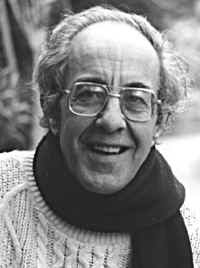
I once thought that one of the problems with my inner life was that I loved myself too much. But I have concluded that this is not the case whatsoever. If I truly loved myself then I would always do what is best for myself, as I walk daily before God, and do good to others. This has not been a reality for me in the past. One of the major problems with my inner life has been self-blame, and self-rejection, not self-love. I have had difficulty even liking myself, not to mention loving myself.
Henri Nouwen, in his book The Inner Voice of Love: A Journey Through Anguish to Freedom, explains that "self-blame is not a form of humility. It is a form of self-rejection." (86) When an event does not pan out as I wished, self-blame sets in, and I imagine such blame as godly humility. Nouwen writes: "When a friendship does not blossom, when a word is not received, when a gesture of love is not appreciated, do not blame it on yourself. This is both untrue and hurtful." (86) I must endeavor to view all forms of rejection objectively.
For example, given that Christ is Lord of my life, I must understand that He is guiding my steps as I seek to live in, through, and for Him (Ps. 37:23). If I encounter some form of rejection, I must understand that, in an ultimate sense, the Lord has another plan. If I do not, however, view rejection in such a manner, but begin to reject myself, then a dangerous worldview can be adopted. Nouwen writes:
Every time you reject yourself, you idealize others. You want to be with those whom you consider better, stronger, more intelligent, more gifted than yourself. Thus you make yourself emotionally dependent, leading others to feel unable to fulfill your expectations and causing them to withdraw from you. This makes you blame yourself even more, and you enter a dangerous spiral of self-rejection and neediness. (86) I have experienced this reality, and I can attest that Nouwen's conclusion is correct. Leaving myself utterly vulnerable to the dependence of others for validity or happiness or fulfillment is desperate. In the end, the only one hurt is myself. At such a point, self-rejection sets in, and a vicious cycle is repeated.
I cannot, nor should anyone else, deny that when rejection is experienced a sense of hurt is also present. Rejection hurts because we perceive ourselves as unworthy of love and respect. But unless we reject self-rejection, then we will continue on an anxious, downward spiral of mental and emotional anguish, torment, and despair.
If someone I imagined as a friend constantly mistreats me, emotionally hurts me, I should not, then, reject myself. But neither should I harbor malcontent for the other person. Harshly blaming others in such instances can be just as harmful as self-blame. I should give no place for a root of bitterness to grow within me (Eph. 4:31; Heb. 12:15).
In such a circumstance, I should merely conclude that the two of us do not make an appropriate, friendly match. Yes, I may still experience a little hurt. But I should not be devastated by and obsessive over the fact that we do not make a perfect, friendly match. Nor should I reject myself, and think less of myself, as someone unworthy of quality relationships. Nouwen writes:
Avoid all forms of self-rejection. Acknowledge your limitations, but claim your unique gifts and thereby live as an equal among equals. That will set you free from your obsessive and possessive needs and enable you to give and receive true affection and friendship. (87) If I am to be a healthy friend, or brother in Christ to others, then I must maintain a proper view of myself. If I am constantly rejecting myself then how can I expect others to embrace me?
Moreover, if God the Creator embraces me in and through Christ (Eph. 1:5-6), and even counts me as His friend (John 15:14-15), then I actually have no right to self-rejection. If God has not rejected me, then I cannot reject myself. Rejecting myself would implicate God's better judgment. By His grace, I will constantly be rejecting self-rejection.
__________
Henri J.M. Nouwen, The Inner Voice of Love: A Journey Through Anguish to Freedom (New York: Image Books, 1998).
This post was written by William W Birch. For the original post with comments, go to: http://www.classicalarminian.com/2013/01/rejecting-self-rejection.html
BE HOLY.
BE A MAN.
 RSS Feed
RSS Feed